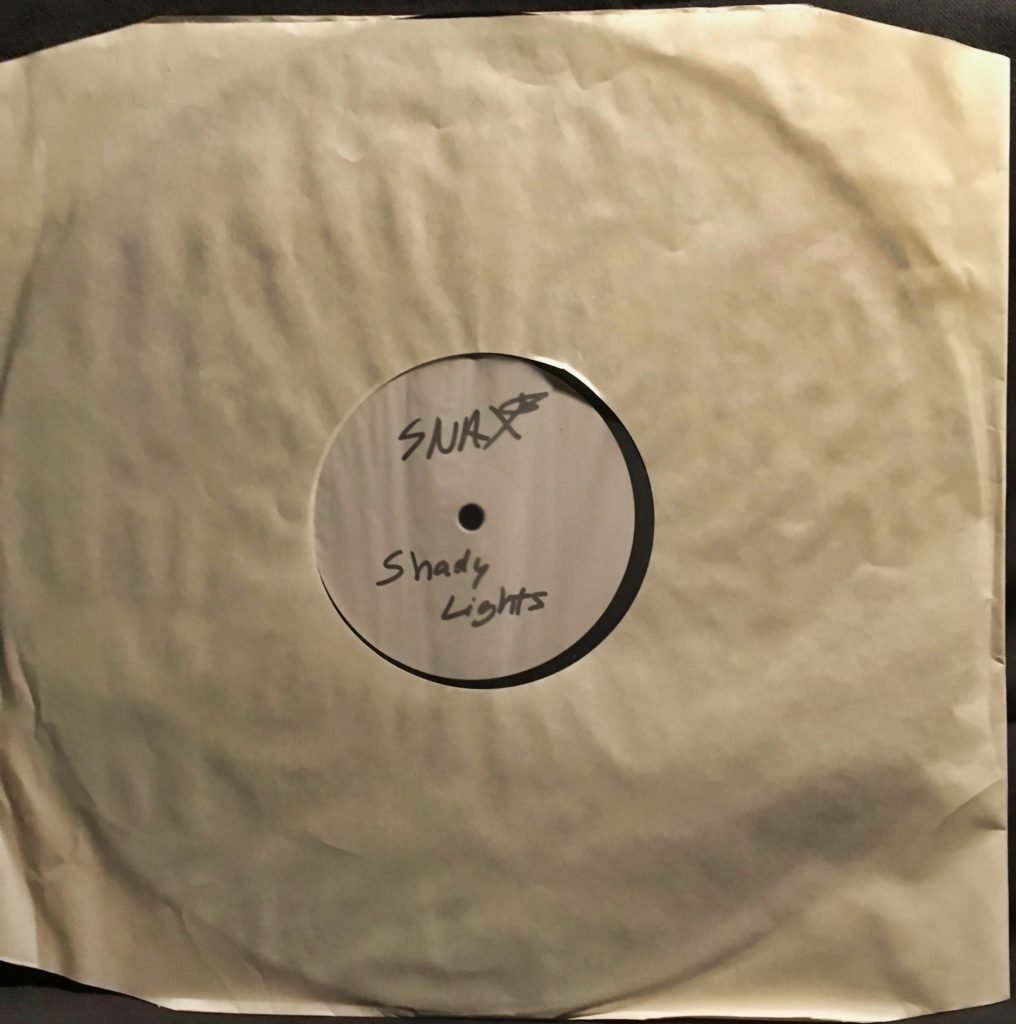
- I’ve brought on a couple of new clients for publishing representation: San Francisco’s Sleight Of Hands (check out their excellent cover of “I’m Not In Love”) and Nathan Maners. There are others in the works. Exciting times here at 8DSync.
- I’m also working on two new projects in an advisory role: an upcoming EP from Arthur’s Landing titled Spring Collection; and a single from Terry Grant’s More Ghost Than Man project, taken from his stunning 2016 self-titled album.
- A major project this month was the launch of Snax’s PledgeMusic campaign for the vinyl version of his excellent Shady Lights album. I was closely involved in putting this together and enjoyed collaborating with Snax and the PledgeMusic team. This company has a great crew working behind the scenes. If you are a fan of limited edition vinyl in a deluxe package or solid electronic funk music in general, then I implore you to check out Snax’s Shady Lights campaign.
- Eagle eyes may notice that I’ve removed the Services tab from this site. I’ve decided to do fewer label services projects and focus more on music publishing, licensing, and consultancy. I’ll be revamping things here over the following weeks, and will be offering a new way that I can help independent labels and self-released artists determine and implement innovative strategies. Stay tuned.
- The weather is warming up in Florida. We’ve already hit the mid-80s a few times, and we’re not yet out of February. I’m torn between being worried and overjoyed. Regardless, I’m resuming my Lake Holden paddle board sessions, a highlight of my day and the preferred way to meditate and think.
- What I Read This Month:
- What I Watched This Month:
The Square
Hiroshima, Mon Amour
BPM (Beats Per Minute) (my favorite 2017 movie, I think)
Phantom Thread - What I Listened To This Month:
Deutsche Elektronische Musik 3: Experimental German Rock and Electronic Music 1970-82
Palta – Universel
Pendant – Make Me Know You Sweet
Patrick Cowley – Afternooners
San Mateo – Breather
The House In The Woods – Bucolica
Kuniyuki Takahashi – Early Tape Works (1986 – 1993) - A Few Other Things I Enjoyed This Month:
Seth Godin has a fantastic new weekly podcast titled Akimbo
If you make true crime documentaries then act quickly to acquire the rights to this tale of the Worst Roomate Ever
I like the writer Steven Johnson, and I’ve been wrapping my head around blockchain, so I found this article fascinating: Beyond The Bitcoin Bubble
Artist Winston Smith designed all those Dead Kennedys album covers I loved as a teenager. It’s a pleasure to find out he’s a pretty cool dude, too.



